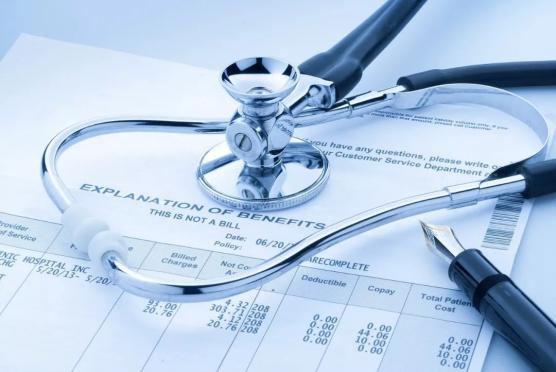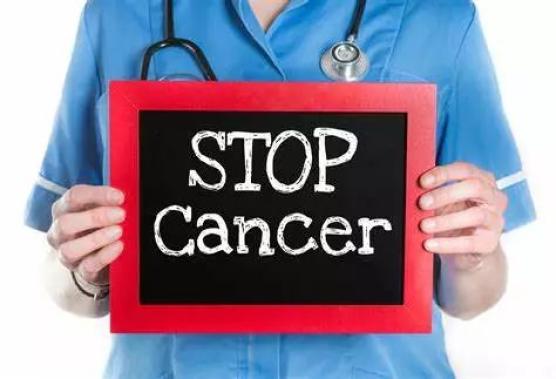Original pineapple factor of Dr. pineapple after 80′ s
Text | pineapple
Every year, nearly 5 million people in China are diagnosed with cancer.
When hearing the word cancer from doctors, almost everyone’s first reaction is shock, and their brains are blank. Although there are countless questions in their hearts, they don’t know where to ask. This is normal, don’t worry. The key is to get through this initial "blank period" as soon as possible, and then communicate effectively with doctors, which is very important to achieve the best treatment effect.
Every day, people ask pineapple what information is most important to talk to doctors. Today, I will give you some suggestions. For newly diagnosed patients, it is a good start to think and ask the following 10 questions.

1. Is there a cure for my cancer?
This is almost everyone’s first question, but it is also the most difficult question to answer and there is no simple answer.
Different people’s cancer is completely different, so we must listen carefully to the doctor’s explanation to understand whether the purpose of treatment is to cure or prolong life. At the same time, it is suggested to know the survival rate data, recurrence probability, treatment methods, etc. of your specific cancer type, and make a comprehensive decision to make the best follow-up decision for yourself.
2. Where is the tumor? Is there a transfer?
Oncologists have many therapeutic tools, including surgery, radiotherapy, chemotherapy, targeted drugs, immunotherapy, clinical trials and so on. The location and metastasis of the tumor will determine the specific method chosen by the doctor.
For example, some parts can’t be operated, and some parts can’t be irradiated. If cancer cells metastasize, surgery alone is not enough, but systematic therapy is needed, including chemotherapy, targeted drugs and immune drugs.
3. What is the stage of cancer?
The purpose of cancer staging is to understand the malignant degree of tumor cells. It is determined according to the state and distribution of tumor cells in the body, usually from stage 0 to stage 4.
At the earliest stage of stage 0, all the bad cells are localized, and almost 100% can be cured by surgery or radiotherapy. However, the cancer cells of stage 4 patients have metastasized to other tissues of the body, so systematic comprehensive treatment is needed.

4. What therapies are doctors going to use?
Now the treatment of cancer has become more and more personalized. Most of the time, doctors will use a variety of therapies for mixed treatment to achieve the best results.
Remember to ask the doctor what kind of therapy he plans to use, what is the reason for using each therapy, how long it takes for each therapy, how often, what possible side effects are there, and whether there are any ways to alleviate side effects, and so on.
5. Can you work during the treatment?
Most therapies have some side effects on the body, and everyone’s reaction may vary greatly. Many patients can continue to work, participate in some recreational activities and even keep exercising during the treatment.
Cancer treatment usually makes people tired, so patients need to reduce their work intensity or activity frequency, but people should not give up their hobbies and life completely just because they want treatment.
6. Should we change our diet and exercise habits?
If you want to beat cancer, you must have a healthy diet, and if possible, it is best to supplement it with regular exercise.
You can ask your doctor if there is any special recommended food or diet. Some foods can help drugs take effect, while others can help reduce the side effects of chemotherapy or radiotherapy. Doctors often recommend people to avoid some foods, such as those that are high in oil and fat and difficult to digest.
Exercise is also very important: there is evidence that regular exercise can improve the quality of life of patients, including strengthening the immune system and reducing pain. But please do what you can to avoid injury.

7. Do you need vitamins or nutrients?
Patients need enough nutrition and energy to fight cancer, but doctors usually recommend a rich natural food combination instead of a single health care product to supplement nutrition. Some high-dose health care products may even accelerate the growth of cancer cells or reduce the effect of other anticancer drugs, so they must be used with caution.
Be sure to consult the attending doctor before using any supplements, including Chinese herbal medicine/pure natural supplements.
8. Besides modern medical methods, is it worth trying other therapies?
In addition to surgery, chemotherapy and radiotherapy, many patients will consider so-called "alternative therapies", including acupuncture, massage, yoga and meditation.
On the one hand, all "alternative therapies" have not been proved effective by rigorous scientific clinical trials, so we can’t expect to cure cancer by them alone.
On the other hand, they do often bring some benefits, such as reducing pain, relieving anxiety and improving mood. Although the placebo effect cannot be ruled out, it can still be considered as an aid to modern medicine to improve the quality of life.
9. Should I consider participating in clinical trials?
Recently, new anti-cancer therapies have emerged one after another, and there are thousands of cancer clinical trials under way. But not everyone needs it, and not everyone is suitable. In many cases, using the current standard therapy is a safer and more effective choice.
If conditions permit, it is very valuable to know the advantages and disadvantages of relevant clinical trials as much as possible. Even before the tumor shows signs of drug resistance or recurrence, knowing the new therapies that may be involved in the follow-up can bring comfort and encouragement to patients and their families.
10. Do you need to consult another doctor?
It may be awkward to ask the attending doctor this question directly, but because the treatment of cancer is changing with each passing day and becoming more and more complicated, it is valuable to listen to an expert’s "second diagnosis and treatment opinion".
In fact, more and more patients in Europe and America, especially those with advanced stage, will consult many doctors for a relatively unified treatment plan. More and more doctors, especially confident doctors, are beginning to support patients’ choices. On the one hand, it can reduce patients’ suspicion, on the other hand, it may also be an opportunity for self-improvement and learning.
I wish you all the best and a speedy recovery!
Read the original text
关于作者